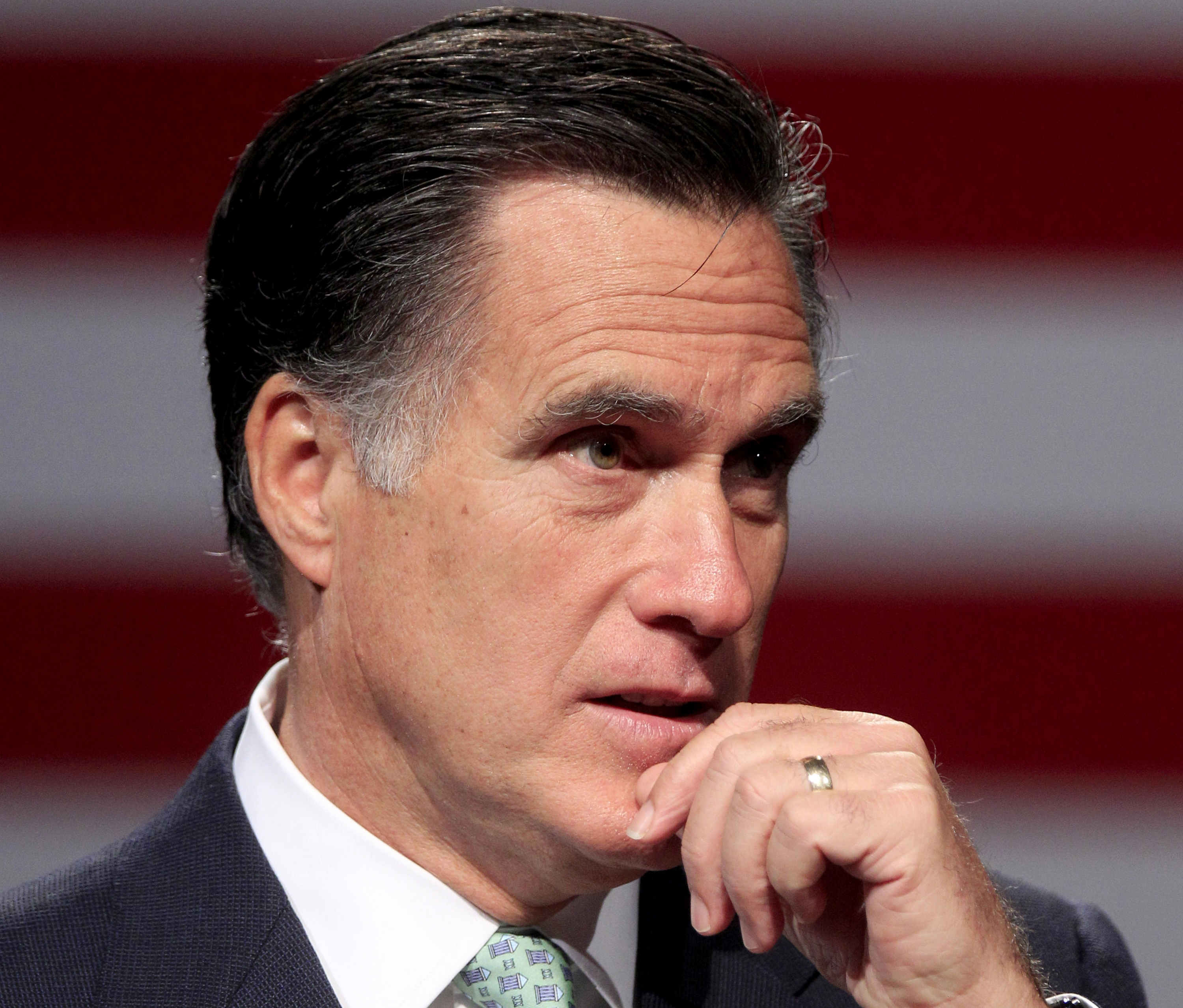George W. Bush is gone from the White House, but his presidency remains prominent in the memory of most Americans. That's not good for Mitt Romney, the likely Republican presidential nominee who must deal with the questionable legacy of the former president.
Romney, just 155 delegates short of the 1,144 need to win the nomination after Tuesday's primary victories in Oregon and Nebraska, is between a rock and a hard place when it comes to the 43rd president. If he ignores him, it could cost him votes and money. If he is viewed as too friendly to him, it could cost him votes, too.
George W. Bush remains a divisive political figure. Polls show that many Americans -- and would-be voters -- still blame him for the state of the economy and for the Iraq war. That opprobrium is not limited to Democrats, who view Bush and his record as fair game. Many staunch Republicans, particularly moderates, prefer not to discuss his record, either. They understandably view it as a negative in the current campaign.
Romney can't afford to repudiate George W. Bush. The former president has kept a low profile since leaving the White House. Nevertheless, he remains a powerful figure and significant fund-raiser in districts and states with heavy, conservative Republican majorities. Any real or perceived snub from Romney towards Bush, then, could alienate a big bloc of voters and dry up a ready source of cash. If that occurred, it could inflict a major wound on the Romney campaign.
The same thing could happen if Romney is viewed as too cozy with the former president. One of the Obama campaign's most persistent and credible charges against the GOP front-runner is that he would reinstate Bush tax, job and economic policies that favor the wealthy few at the expense of the middle class and the poor. If Romney yokes himself in any meaningful way to George W. Bush, it gives credence to those arguments and strengthens the Democratic cause.
So far, Romney has managed to tiptoe around the Bush problem. He rarely refers to his predecessor by name and ignores his role in undermining the U.S. economy. Instead, he blames President Obama for all ills, conveniently overlooking the positive changes that have taken place in the last three-plus years.
Romney's dilemma was clearly evident Tuesday, when George W. Bush told a reporter in Washington, D.C. that "I'm for Mitt Romney." There was no elaboration. Even so, the Romney campaign was less than thrilled. Rather than trumpet the news, as it did following other high-profile endorsements, a spokesman barely acknowledged it with a statement that read. "We welcome the president's [George W. Bush] support, as we welcomed his father's."
Romney can ignore the Bush record and his party's embrace of the policies that created it. If he wants to be president, though, he'll have to explain how his platform is different. So far, he has failed to do so.

